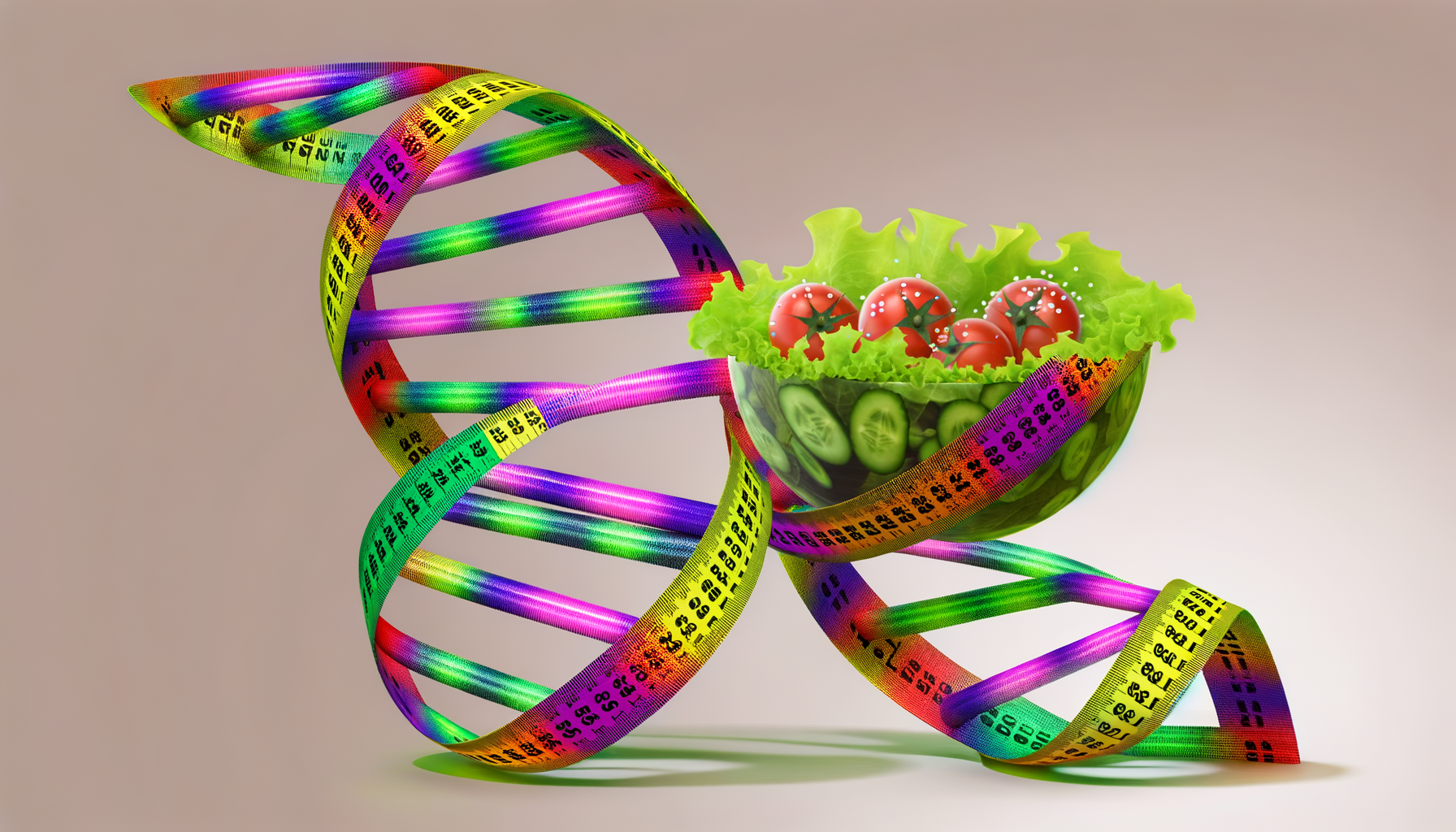The Future of Weight Management: Integrating Calorie Data with Genetic Testing
In the evolving landscape of health and fitness, the integration of genetic testing with calorie data is revolutionizing the way we approach weight management. This innovative approach, often referred to as personalized nutrition or nutrigenetics, tailors dietary recommendations to an individual’s unique genetic profile, metabolic needs, and lifestyle. Here, we delve into the details of how this integration can lead to more effective and sustainable weight management strategies.
Understanding Genetic Testing in Nutrition
Genetic testing, particularly in the context of nutrition, involves analyzing an individual’s genetic variations to understand how they metabolize different nutrients. This field, known as nutrigenetics, has shown promising results in enhancing weight management outcomes. For instance, a study published in the Journal of the American Dietetic Association found that individuals who received nutrigenetically tailored diets were more likely to maintain weight loss over a longer period compared to those on standard diets.
Genetic tests typically screen for variants in genes involved in metabolism, such as those related to carbohydrate, fat, and protein metabolism. For example, the *MTHFR* 677T allele requires individuals to consume more folate and B vitamins to maintain healthy homocysteine levels.
The Role of Calorie Data in Personalized Nutrition
Calorie data is a crucial component of any weight management plan. By integrating calorie data with genetic testing, individuals can receive highly personalized dietary recommendations. Tools like the Calorie Calculator Cloud can help individuals track their calorie intake and balance it with their genetic requirements.
For instance, if genetic testing reveals that an individual has a genetic variant that makes them more sensitive to saturated fats, the calorie calculator can be adjusted to recommend lower intake of such fats. This personalized approach ensures that the diet is not only calorie-balanced but also genetically optimized.
Advanced Technologies and Multi-Omics Approaches
The integration of genetic testing with calorie data is further enhanced by advanced technologies such as machine learning algorithms and multi-omics approaches. Multi-omics involves the analysis of genomic, transcriptomic, proteomic, and metabolomic data to provide a comprehensive view of how nutrients interact with an individual’s biological system.
Machine learning algorithms can predict postprandial glucose, triglyceride, and insulin levels, facilitating customized dietary interventions. This precision allows for more accurate and effective weight management strategies, as it takes into account the individual’s genetic background, gut microbiota, and metabolic profile.
Real-World Examples and Case Studies
Several case studies and clinical trials have demonstrated the efficacy of integrating genetic testing with calorie data. For example, the Dr. Arkadianos clinic in Athens conducted a study where patients who received nutrigenetically tailored diets showed better long-term BMI reduction and improvements in blood fasting glucose levels compared to those on standard diets.
In another example, Nutrisystem integrated genetic testing into their weight loss program and found that 3 out of 4 diet participants believed the knowledge provided by genetic testing would increase their motivation for dieting and exercise.
Practical Implementations and Best Practices
For dietitians and healthcare providers, implementing genetic testing involves several best practices. It is crucial to select the right genetic markers and use validated algorithms to assess traits such as weight loss potential and metabolic responses to different nutrients.
Dietitians like Cindy H. Carroll and Kassandra Gyimesi have successfully used genetic testing in their practices to provide personalized dietary advice. For instance, clients with specific SNPs may be advised to increase their intake of omega-3 fatty acids or whole grains based on their genetic profile.
Challenges and Future Directions
While the integration of genetic testing with calorie data holds great promise, there are several challenges to overcome. These include the high cost and time-consuming nature of genetic testing, as well as ethical and data privacy concerns.
To address these challenges, further research and validation through randomized controlled trials are necessary. The accumulation of a larger body of evidence will strengthen the foundation of precision nutrition and facilitate its broader adoption in clinical practice.
Conclusion and Next Steps
In conclusion, integrating calorie data with genetic testing represents a significant advancement in personalized weight management. By leveraging advanced technologies and multi-omics approaches, individuals can receive tailored dietary recommendations that are both calorie-balanced and genetically optimized.
If you are interested in taking your weight management to the next level, consider using tools like the Calorie Calculator Cloud in conjunction with genetic testing services. For more detailed plans and pricing, you can visit the Calorie Calculator Plans page.
Embracing this personalized approach can lead to more effective, sustainable weight loss and improved overall health outcomes. As the field continues to evolve, it is exciting to think about the potential for even more precise and beneficial dietary interventions in the future.








